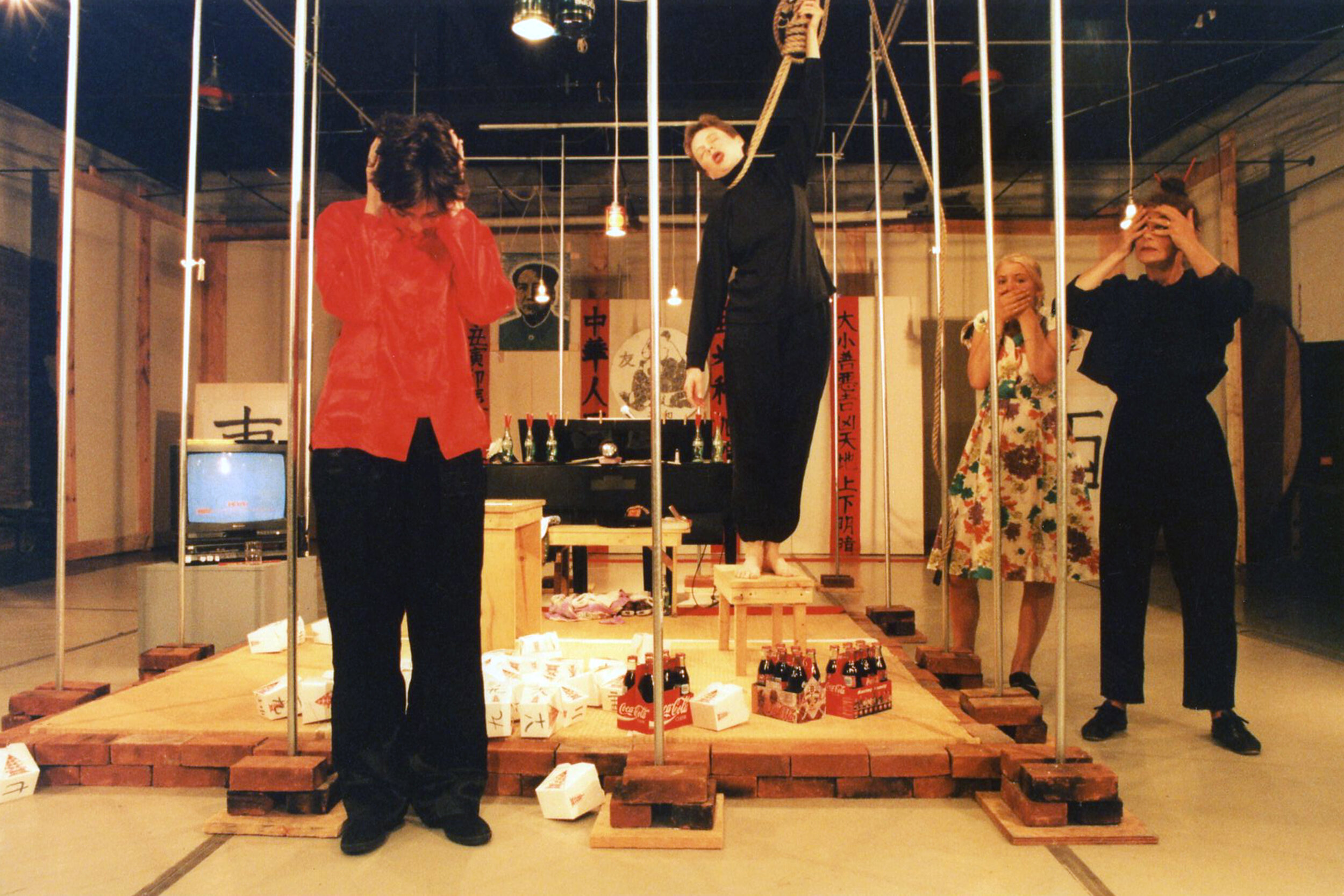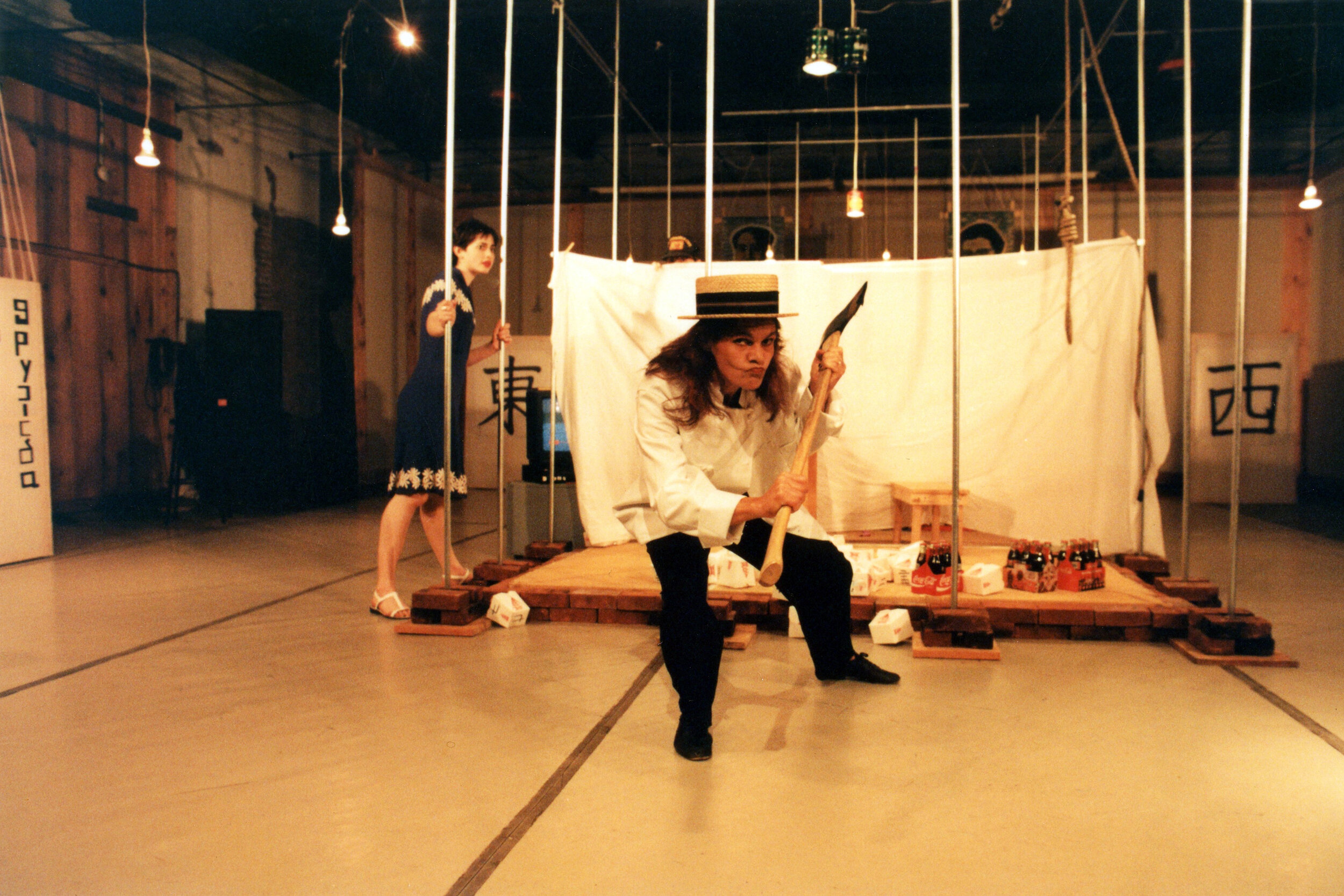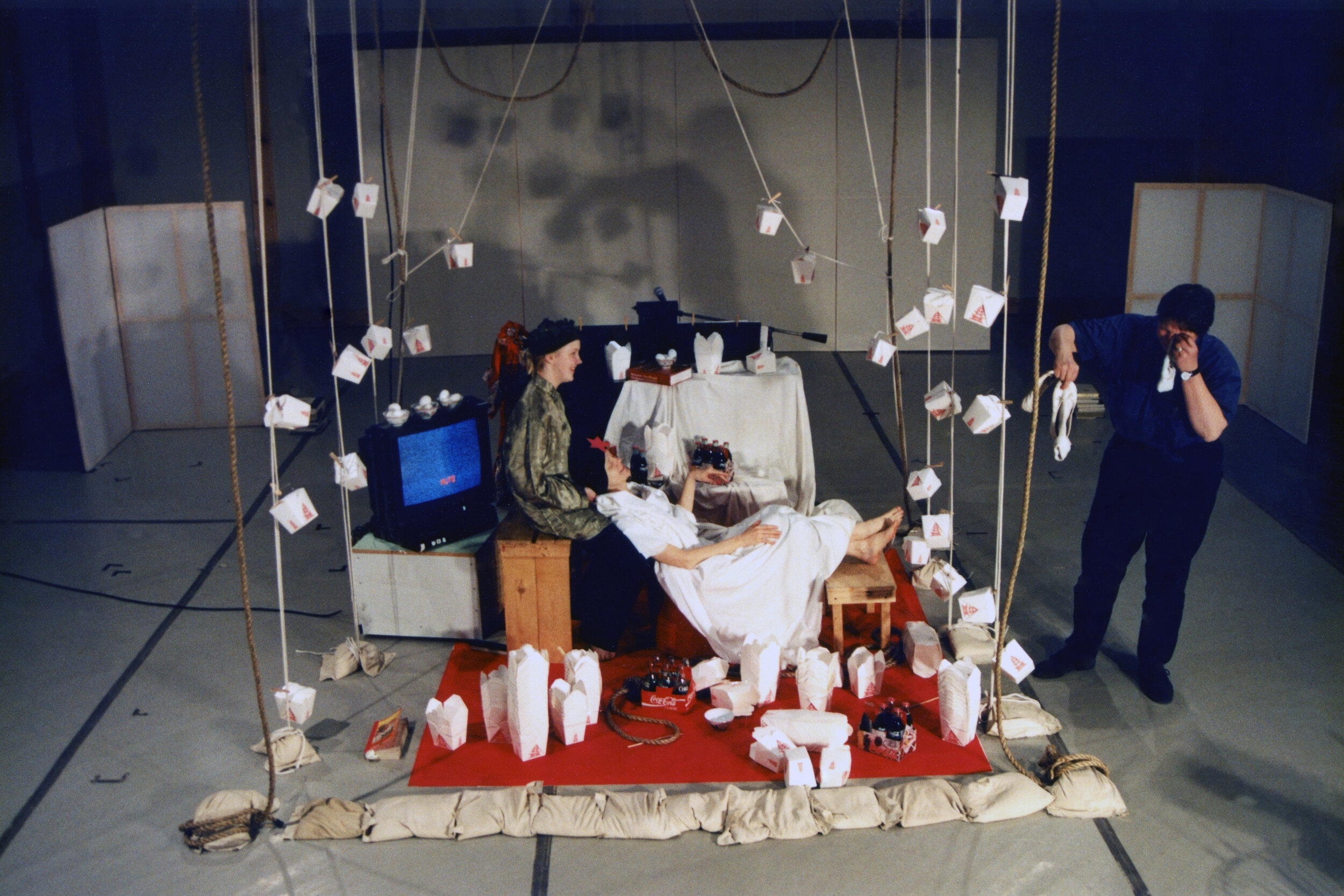
Mao Wow
On May 14th, 1991, Mao Zedong’s widow, Jiang Qing was found hanged in her prison cell. When the news reached Linda Mussmann, she was intrigued to learn that Madame Mao, a former actress, had still been alive.
“Mao Wow” is an abstract rumination on how this fallen leader may have spent her final decade behind bars; re-enacting the death scenes of her favorite dramatic roles, haunted by the ghosts of Kafka and Freud. Being a Mussmann/Bruce production, elements of the artists’ own personalities inevitably seep in, with connections drawn to local politics in Columbia County, as well as the lives of actresses Kate Stein and Maarika Polikarpus.
1999
Time & Space Limited, Hudson, NY (TSL WareHouse)
written, designed & directed by LINDA MUSSMANN
in collaboration with CLAUDIA BRUCE
with Susanne Helmes, Maarika Polikarpus, and Kate Stein
with technical assistance from Ryuji Noda and Beau Joly
original lyrics to the song “Madame Mao: Legends Never End” by Rudy Wurlitzer
“I was Mao’s dog. When he said bite, I bit.”
Artist Statement from Linda Mussmann, 1999:
“Mao Wow” finds inspiration in the zealous activism of Madame Mao (Jiang Qing), centering on the intense last moments before her death as a timeframe for the entire work. The theme of revolution in public and private spheres weaves throughout this fast-paced, high-energy work whose fragmented state mirrors the chaotic energy surrounding a struggle for political or personal freedom.
The central figure of the play was the last wife of communist leader Mao Zedong. She came from a poor family with the intention of becoming a professional actress. While she was acting and teaching at Lu Hsun Academy, Ch’ing met Mao Zedong. (Qing) not only became Mao’s companion but also acted as his secretary, beginning a collaboration that lasted for many years. She is quoted as saying: “I am Mao’s dog. When he said bite, I bit.”
Besides her pivotal role in the Cultural Revolution, (Qing) continued to remain at the forefront of Chinese politics until her death, acting as the Secretary of the Standing Committee of the Politboro, the legislative branch of the Communist Party. When Premier Zhou and Chairman Mao both died in 1976, Hua Guofeng became premier. Under Hua, Chiang (Qing) was arrested and charged with assorted crimes. (Qing) died by suicide in her prison cell in 1991.”
“I was an American, she was Chinese.
I was Mussmann, she was Madame Mao”
John Mason, Register-Star, June 11, 1999:
“At one point Claudia Bruce, as Madame Mao, sits in her prison cell… surrounded by an ever-growing pile of empty take-out cartons dumped on the floor by other actors in the play. The clash of western and eastern cultures is embodied here, the carton representing American ideas of China. Cartons of Coke bottles, on-stage throughout the play, represent Chinese ideas of America.
Bruce’s “cell,” more like a cage, suggests the artist’s inability to act in the world. Madame Mao is immobilized in the center of the stage with her memories of when she played Hedda Gabler or Antigone or Nero. Death itself becomes a grand performance. As characters come into her cell to arrest, accuse, question and hang her, Madame Mao critiques their acting or cheers them on with “Excellent! Excellent!”
“Greenport’s the donut and Hudson’s the hole”
"I was hanging out at the donut place. I thought what kind of avant-garde artist hangs out at the donut place? … I saw Proust, going to Dunkin' Donuts to recall his past… There is no place to think if you are out in suburbia… There are a lot of things that are supposed to be beneath artists. I think what fascinates most people is worth checking out, worth looking at. You have to remove that class distinction… I started taking Greenport, the suburban town that surrounds Hudson, into consideration. What is this place where I do my shopping? What are all the components of my community? How do I engage with it and get it in here?"
-Linda Mussmann, 2000
“Fashioned as a comedy, “MAO WOW” highlights the struggles with historical and personal truth necessary to facilitate change. It makes reference to historical and local situations in which freedom is put to the test, often pointing to Hudson’s political scene as an example in which the truth suffers distortion and consequently individual rights are impeded. It also makes personal references to the lives of the actors in the play, such as to Kate Stein and Maarika Polikarpus, teenagers who reside in the area, and Mussmann, herself, adding another meta-text to this play-within-a-play-within-a-play. The dilemmas of the teenagers to quit high school and of Mussmann to run for mayor mirror Madame Mao’s struggle with freedom and choice on a different scale.”
-TSL Newsletter June 1999








